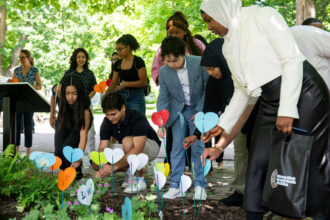The Duke of Edinburgh will make his first official visit to Canada this summer, with plans to attend Canada Day celebrations in Ottawa as the centerpiece of a three-province tour. Prince Edward, who inherited his father’s title following Prince Philip’s death in 2021, will embark on a journey that highlights the enduring relationship between the Royal Family and Canada during a particularly symbolic national holiday.
“This visit represents an important continuation of the Royal Family’s long-standing connection to Canada,” said Patricia Jagger, spokesperson for the Governor General’s office. “The Duke’s presence at our national celebrations will be especially meaningful as we reflect on our constitutional monarchy and shared history.“
The royal itinerary begins in Newfoundland and Labrador, where the Duke will participate in commemoration ceremonies marking significant provincial milestones. His schedule includes meetings with Indigenous leaders to discuss reconciliation efforts and environmental conservation initiatives along the Atlantic coast, according to CO24 Canada News.
Following his time in Atlantic Canada, Prince Edward will travel to Ottawa where he will join the Prime Minister and other dignitaries on Parliament Hill for the official Canada Day festivities. Sources close to the planning committee indicate the Duke will deliver remarks highlighting the special relationship between the United Kingdom and Canada, which continues to evolve in the post-Brexit era.
“The symbolic importance of having a senior royal present for Canada Day cannot be overstated,” noted Dr. Elaine Thompson, professor of Canadian history at Queen’s University. “Particularly at a time when many Commonwealth nations are reassessing their constitutional arrangements, this visit reaffirms Canada’s unique position within the monarchy’s framework.”
The final leg of the royal tour will take the Duke to British Columbia, where he will focus on youth leadership programs and sustainable development projects. Prince Edward has long championed the Duke of Edinburgh’s Award, which remains popular across Canada with over 45,000 young Canadians participating annually in the achievement program founded by his father.
Canadian heritage officials have estimated the royal visit will cost approximately $150,000 in security and logistical arrangements, a figure substantially lower than previous tours by more senior royals. The Duke’s reputation for a more modest approach to royal duties appears to have influenced the planning process, with fewer ceremonial elements and more substantive engagements scheduled.
Public reaction to the announced visit has been largely positive, though not without the expected debates about the relevance of the monarchy in contemporary Canadian society. A recent poll conducted by Angus Reid Institute found that 58 percent of Canadians welcome royal visits, while 27 percent question their value and cost, as reported by CO24 Politics.
“The timing of this visit is particularly interesting given the ongoing discussions about Canada’s constitutional future,” observed political analyst Martin Reeves. “While not as high-profile as a visit from King Charles would be, the Duke of Edinburgh represents a generational bridge that connects the traditional monarchy with more modern sensibilities.”
For many Canadians, the royal presence on Canada Day will provide a tangible reminder of the historical foundations upon which the nation was built, even as the relationship continues to evolve. As we witness this latest chapter in Canada’s royal connections, one question remains: How will this visit shape the monarchy’s relevance to a new generation of Canadians who are increasingly defining their national identity through diversity and independence rather than colonial ties?
























